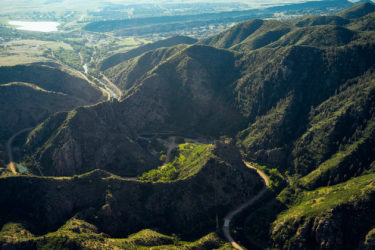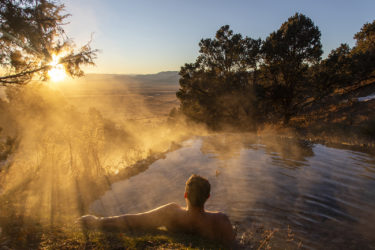The Local newsletter is your free, daily guide to life in Colorado. For locals, by locals.
On Tuesday, March 15, the U.S. Senate surprised everyone by actually agreeing on something when it unanimously voted in favor of the Sunshine Protection Act. The proposal would see the country adopt daylight saving time year-round, meaning an extra hour of sunlight each winter afternoon. Though it still has to pass the House and the president’s desk, many people have long clamored for the change. Some Twitter users even declared they were single-issue voters who’d support any candidate that would abolish standard time.
But now that it’s one step closer to reality, some Colorado ski resort employees are worried about what it means for them. “A lot of what we do in the morning … revolves around safety checks to make sure that not only our guests but our employees are safe,” says Tony Cammarata, operations director at Arapahoe Basin Ski Area. While permanent daylight saving time may add an extra hour of sunlight in the afternoon, it’s stealing that hour from the morning. Denver’s 7:17 a.m. sunrise on the winter solstice, for example, would happen at 8:17 a.m. instead.

At A-Basin, that means the sun may not even creep over the mountains until nearly 9 a.m. on the shortest days of the year. “You’re talking about trying to evaluate terrain … or make decisions when part of your senses [is gone]. Eyesight is all part of the decision-making process.” There are a lot of moving parts, from assessing avalanche risk and other hazards to inspecting lifts and carting supplies around the resort on snowmobiles and snowcats. Doing that in the dark—or trying to squeeze it all into the smaller amount of daylight before first chair—could lead to problems, such as ski patrollers missing a rope that’s been snagged by a snow groomer in the dark and dragged across a run during their morning trail checks.
It could also mean delayed openings, especially on powder days, says Winter Park spokesperson Jen Miller. The resort’s steepest terrain is deeper into the resort, she explains, and just getting patrollers out there, much less using explosions to clear potential slides, could be a no-go in the dark. Right now, Winter Park opens at 8:30 a.m. on the weekends, which is a little over an hour after sunrise on the darkest day of the year, but with permanent daylight saving time, sunrise would be just 10 minutes before the mountain starts spinning its lifts.
Both Miller and Cammarata agree the simplest option could be to push back first chair. Those delays, however, could have a cascading effect on pass holders, Miller says. As a former Denverite of 20 years, she knows what it’s like to have your ski day start times and secret routes to avoid traffic dialed in after years of trial and error, and that would all have to be relearned if Colorado’s resorts start opening at 10 a.m. instead of 9 a.m. “But on the flip side, there is some benefit since it would be lighter later,” she says, meaning the resort could potentially extend its operating hours to make up for lost time in the morning.
Cammarata isn’t sure it’s as easy as just extending the ski day. Because only the amount of light is changing, not when certain daily events take place, he thinks an extra hour of lift service in the afternoon may not help skiers who have a schedule to keep, including things like picking kids up from childcare or cooking dinner. He’s also worries about the confusion it could cause guests if resorts start shifting opening and closing times to follow the sun. “It’s all about creating a routine,” he says. “If we start telling them, Well, in March, it’s going to be this time and in April it’s going to be another because conditions changed, … I don’t know if that makes much sense for running an efficient operation.”
Worse yet, he worries those types of changes could become a competitive disadvantage for Colorado ski resorts if, say, Utah votes to keep standard time. “I don’t know what the market would bear if these decisions were put into place,” he says. “It’s just something that people really have to think about.”
(Read more: 10 Ways to Make Skiing in Colorado Fun Again)








